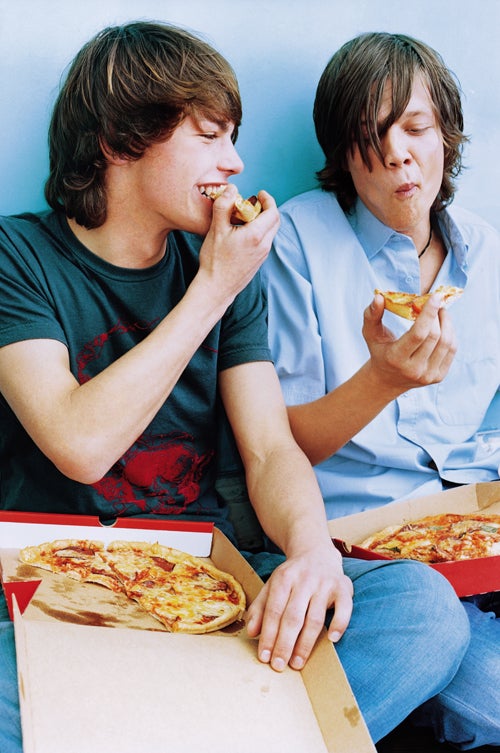Slotting into an eating routine as a student can be very difficult, which makes maintaining a healthy diet even harder.
With early mornings, lectures at all times of the day and activities and events in the evening, your daily pattern is left disturbed. As a result, the ease of snacking can be very tempting for students, sometimes at the expense of sitting down for three proper, healthy meals a day.
Student snacking
According to a study by Fly Research that was commissioned by Kellogg’s, students are the most confused about snacking compared with other age groups, with 44 per cent unsure whether it is good or bad for them. 92 per cent of students snack alone because they see it as a guilty pleasure, perhaps unsurprising when 47 per cent of those snack on chocolate on regular basis!
Jude Flynn, 21, studying Russian at University College London, is a self-confessed snacker, although she doesn’t worry about snacking on all foods. “It depends what I snack on,” she says. “I do feel guilty when I snack, but not when I snack on healthy things.” Just under half of students feel all snacking between meals will make them put on weight, yet 71 per cent of students still eat between meals due to boredom, often then filling up on snacks and missing their main meal.
The truth about snacks
Carefully planned snacking can be very beneficial to your health, helping you get you your daily portions of fruit and vegetables, maintaining you metabolism and helping concentration and energy throughout the day. “We need to get back to basics by eating three main meals plus two nutritious snacks a day at the traditional refreshment times of 11am and 4pm, and to be as active as possible,” says leading nutritionist Nigel Denby. “It’s as simple as that!” Many people overeat during main meals but snacking can quell the hunger and stop you from gorging at dinner.
How to snack
You need to think about what you’re eating. Plan ahead and pick snacks that will offer important nutrients as well as energy, ideally from more than one food group. Make sure you change your snacks around too, because if you get bored with the same mid-afternoon option, you might be tempted to go out and buy some chocolate!
While high sugar food may give you a quick burst of energy, the effects will only be short-lived; your blood sugar levels will quickly go down as Jonathan Green, 21, is now all too aware. Formerly a frequent snacker, Green, a recent graduate from York St John University, has learned to temper his snacking on sugary foods. “I know about the side effects of snacking,” he says. “It’s like fast food; you get a high then crash and burn, so I avoid it now.”
What to snack on
Of course, while healthy food such as fruit, nuts, cereal bars, yoghurts and oat biscuits can be an excellent snack, remember to watch how much you have. It is important to keep your portions appropriate to the food, as it is just a snack as opposed to a main meal. People often forget about staying hydrated too. Soft drinks are loaded with sugar, and you’ll get a heavy calorie dose from coffee, so quench your thirst with smoothies, fruit juices or good old water. Snacking at last, need no longer be a guilty secret.
Subscribe to Independent Premium to bookmark this article
Want to bookmark your favourite articles and stories to read or reference later? Start your Independent Premium subscription today.


Join our commenting forum
Join thought-provoking conversations, follow other Independent readers and see their replies